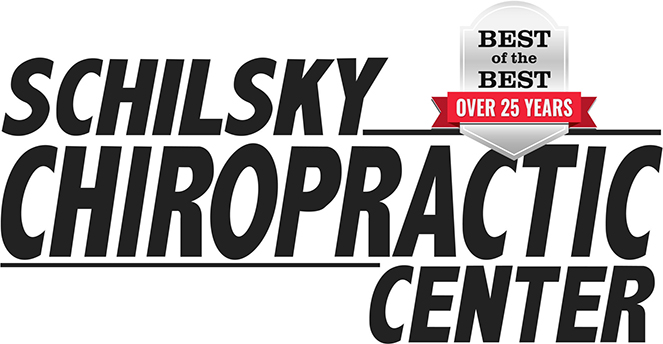Treatment of Stress
Stress Symptoms
What is stress? One person defines stress as, “The rate of wear and tear on the body as a result of anxiety, worry, or exhaustion from a difficult or challenging situation.” Stress can be mental or emotional. It can make you feel anxious, worried, and fearful.
Stress can also be chemical. In fact, many Americans try to counter the chemical effects of stress by taking more chemicals such as drugs or alcohol. According to the latest statistics, over 75 billion dollars are spent each year on legal drugs. Of the 75 billion dollars, about half, or 40 billion dollars are spent each year trying to help stress induced problems. And finally even more interesting is that about 76 billion dollars are spent each year trying to counter-effect the bad reactions that people experienced while receiving medical care.
Stress can be physical. Is there any doubt that stress can cause muscle tension, neck pain, backaches, stomach ulcers, and heart attacks? Stress can certainly be physical. Stress has the ability to lower your body’s immune system.
Some of the primary symptoms of stress include: headaches, fatigue, pain throughout the neck, shoulders, or lower back, irritability, sleeping and or digestive problems, allergy and sinus troubles. If you suffer more than one stress symptom (two, three, four or more), or you suffer from these symptoms more than once a month, your body has a stress disorder. Many people may misinterpret stress for chronic injury or illness. Stress can actually mimic injury or chronic illness. You might be one of the millions of Americans who have seen physicians and chiropractors in the past for medical conditions and spinal adjustments when the underlying cause of your condition was stress!
Another way to determine if you body is suffering from stress is by the presence of local areas of nerve irritation, called trigger points. Trigger points are tender areas along your spine, including your neck, shoulders, mid and lower back areas that indicate irritated nerves. As stress increases in your life, so does the presence of this nerve irritation that leads to muscle reaction in the form of knots or painful areas in your muscles.
When you experience stress, your body releases stress hormones into your bloodstream, including cortisol and adrenaline. These stress hormones cause a whole series of physiological changes in your body, such as increasing your heart rate and blood pressure, shutting down your digestive system, and altering your immune system. Once the perceived threat is gone, the levels of cortisol and adrenaline in your bloodstream decline, and your heart rate and blood pressure and all of your other body functions return to normal.
Chronic stress can disrupt almost all your body’s processes such as interrupting digestion and inhibiting your immune system. Stress has been linked with the nervous system as well, since it can lead to depression, anxiety, panic attacks and dementia. Over time, the chronic release of cortisol can cause damage to several structures in the brain. Excessive amounts of cortisol can also cause sleep disturbances and a loss of sex drive. The cardiovascular system is also affected by stress because there may be an increase in both heart rate and blood pressure, which may lead to heart attacks or strokes.
Stress can be a constant battle for many people. The key to getting stress under control is to understand how to manage it. Here are three helpful stress management tips from Schilsky Chiropractic:
- Know that stress will come – so know your “hot buttons” or “triggers” and know who pushes them.
- Take 10 minutes each night to organize things for the next day and be reasonable in what you can achieve in one day.
- Finally, Proceed through the day in confidence and stay focused.
After decades of research, it is clear that the negative effects associated with stress are real. Although you may not always be able to avoid stressful situations, there are a number of things that you can do to reduce the effect that stress has on your body. The first is relaxation.
Treatments for stress can vary from meditation to medication. Just as each individual with show signs of stress differently, each individual needs to figure out their own path to relaxation. Below are four of the most common ways to relieve stress naturally:
Relaxed breathing
Practice this basic technique twice a day, every day, and whenever you feel tense. Follow these steps:
- Inhale. With your mouth closed and your shoulders relaxed, inhale as slowly and deeply as you can to the count of six. As you do that, push your stomach out. Allow the air to fill your diaphragm.
- Hold. Keep the air in your lungs as you slowly count to four.
- Exhale. Release the air through your mouth as you slowly count to six.
- Repeat. Complete the inhale-hold-exhale cycle three to five times.
Progressive muscle relaxation
The goal of progressive muscle relaxation is to reduce the tension in your muscles. First, find a quiet place where you’ll be free from interruption. Loosen tight clothing and remove your glasses or contacts if you’d like.
Tense each muscle group for at least five seconds and then relax for at least 30 seconds. Repeat before moving to the next muscle group.
- Upper part of your face. Lift your eyebrows toward the ceiling, feeling the tension in your forehead and scalp. Relax. Repeat.
- Central part of your face. Squint your eyes tightly and wrinkle your nose and mouth, feeling the tension in the center of your face. Relax. Repeat.
- Lower part of your face. Clench your teeth and pull back the corners of your mouth toward your ears. Show your teeth like a snarling dog. Relax. Repeat.
- Neck. Gently touch your chin to your chest. Feel the pull in the back of your neck as it spreads into your head. Relax. Repeat.
- Shoulders. Pull your shoulders up toward your ears, feeling the tension in your shoulders, head, neck and upper back. Relax. Repeat.
- Upper arms. Pull your arms back and press your elbows in toward the sides of your body. Try not to tense your lower arms. Feel the tension in your arms, shoulders and into your back. Relax. Repeat.
- Hands and lower arms. Make a tight fist and pull up your wrists. Feel the tension in your hands, knuckles and lower arms. Relax. Repeat.
- Chest, shoulders and upper back. Pull your shoulders back as if you’re trying to make your shoulder blades touch. Relax. Repeat.
- Stomach. Pull your stomach in toward your spine, tightening your abdominal muscles. Relax. Repeat.
- Upper legs. Squeeze your knees together and lift your legs up off the chair or from wherever you’re relaxing. Feel the tension in your thighs. Relax. Repeat.
- Lower legs. Raise your feet toward the ceiling while flexing them toward your body. Feel the tension in your calves. Relax. Repeat.
- Feet. Turn your feet inward and curl your toes up and out. Relax. Repeat.
Perform progressive muscle relaxation at least once or twice each day to get the maximum benefit. Each session should last about 10 minutes.
Listen to soothing sounds
If you have about 10 minutes and a quiet room, you can take a mental vacation almost anytime. Consider these two types of relaxation CDs or tapes to help you unwind, rest your mind or take a visual journey to a peaceful place.
- Spoken word. These CDs use spoken suggestions to guide your meditation, educate you on stress reduction or take you on an imaginary visual journey to a peaceful place.
- Soothing music or nature sounds. Music has the power to affect your thoughts and feelings. Soft, soothing music can help you relax and lower your stress level.
No one CD works for everyone, so try several CDs to find which works best for you. When possible, listen to samples in the store. Consider asking your friends or a trusted professional for recommendations.
Exercise
Exercise is a good way to deal with stress because it is a healthy way to relieve your pent-up energy and tension. It also helps you get in better shape, which makes you feel better overall. By getting physically active, you can decrease your levels of anxiety and stress and elevate your moods. Numerous studies have shown that people who begin exercise programs, either at home or at work, demonstrate a marked improvement in their ability to concentrate, are able to sleep better, suffer from fewer illnesses, suffer from less pain and report a much higher quality of life than those who do not exercise. This is even true of people who had not begun an exercise program until they were in their 40s, 50s, 60s or even 70s. So if you want to feel better and improve your quality of life, get active!


